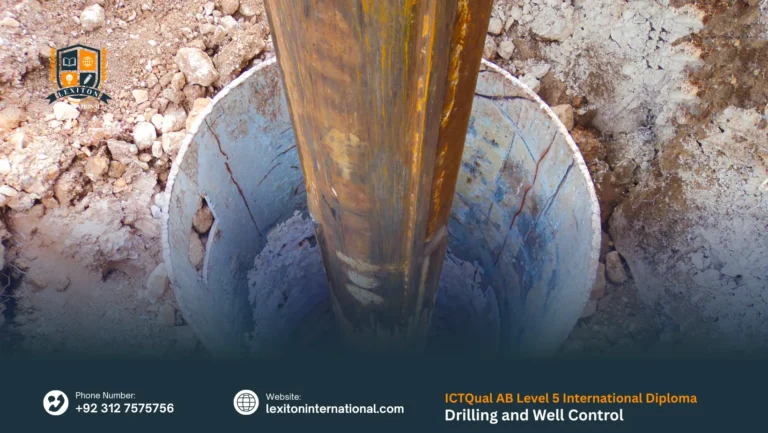The ICTQual AB Level 6 Diploma in Electrical Engineering is a comprehensive three-year programme with 360 credits, designed for learners aiming to gain advanced technical knowledge and professional expertise in electrical engineering. This qualification covers core areas such as power systems, electronics, electrical installations, renewable energy, and electrical project management, equipping learners for both technical and managerial roles.
Participants will gain practical skills in designing, testing, and maintaining electrical systems while ensuring compliance with safety standards and international regulations. The course emphasises real-world applications, including electrical system analysis, fault diagnosis, energy efficiency, and project supervision, preparing graduates to confidently handle complex electrical engineering projects.
Ideal for school leavers, graduates, and professionals seeking career advancement, the Level 6 Diploma provides a strong foundation for leadership and specialist roles in the electrical engineering sector. Graduates will be prepared to work as electrical engineers, project supervisors, maintenance engineers, or energy systems analysts, with the flexibility to pursue further studies or professional certifications for career growth.
The ICTQual AB Level 6 Diploma in Electrical Engineering is designed for learners who want to acquire advanced technical knowledge and professional skills in electrical engineering. To ensure participants can gain the maximum benefit, certain academic, professional, and language requirements are recommended.
- Age Requirement: Learners should ideally be 18 years or older, as the course covers advanced electrical engineering concepts and professional project management skills.
- Educational Background: Applicants should have a Level 5 qualification or equivalent in electrical engineering, electronics, or related disciplines.
Graduates with a bachelor’s degree or equivalent in electrical, electronics, or power engineering are also eligible. - Work Experience: Relevant industry experience in electrical engineering, power systems, installation, or maintenance is beneficial but not mandatory. Practical exposure enhances understanding of course concepts.
- English Language Proficiency:Learners should have a good command of spoken and written English to understand technical materials, complete assessments, and communicate effectively in professional environments.
- Professional Interest in Electrical Engineering:Candidates should have a keen interest in pursuing a career in electrical engineering, power systems, energy management, or project supervision.
- Commitment to Long-Term Study:As this is a three-year, 360-credit programme, candidates should be prepared for a structured learning schedule combining theoretical knowledge with practical applications.
Mandatory Units
This qualification, the ICTQual AB Level 6 Diploma in Electrical Engineering (360 Credits — Three Years), consists of 36 mandatory units.
Year 1: Foundational Knowledge
Year 2: Intermediate Proficiency
Year 3: Advanced Specialization and Application
Learning Outcomes for the Level 6 Diploma in Electrical Engineering 360 Credits – Three Years:
Year 1: Foundational Knowledge
Engineering Mathematics I
- Apply fundamental mathematical concepts such as calculus, algebra, and trigonometry to solve engineering problems.
- Utilize mathematical tools to model and analyze simple electrical and electronic systems.
Fundamentals of Electrical Circuits
- Analyze electrical circuits using basic laws and theorems, such as Ohm’s Law and Kirchhoff’s Laws.
- Design and simulate basic electrical circuits for practical applications.
Principles of Electronics
- Understand the operation of basic electronic components such as diodes and transistors.
- Apply principles of electronics to design simple amplifiers and rectifiers.
Digital Logic Design
- Develop logic circuits using combinational and sequential design techniques.
- Use truth tables and Karnaugh maps to simplify and optimize digital circuits.
Electrical Machines and Transformers
- Explain the working principles of electrical machines and transformers.
- Perform calculations to determine the performance parameters of these devices.
Introduction to Control Systems
- Understand the fundamental concepts of control systems, including feedback and stability.
- Design simple control systems using proportional, integral, and derivative (PID) controllers.
Engineering Drawing and CAD
- Create accurate engineering drawings using traditional and computer-aided design (CAD) tools.
- Interpret and produce technical drawings for electrical and electronic components.
Introduction to Microprocessors and Microcontrollers
- Understand the architecture and operation of microprocessors and microcontrollers.
- Develop basic programs to control hardware systems using microcontrollers.
Electrical Measurement and Instrumentation
- Use measurement tools and instruments to quantify electrical parameters like voltage, current, and resistance.
- Evaluate the accuracy and reliability of electrical measurement systems.
Physics for Engineers
- Apply fundamental physics concepts, such as electromagnetism and mechanics, to engineering scenarios.
- Solve problems involving energy, force, and motion in electrical systems.
Health and Safety in Engineering
- Identify potential hazards in engineering environments and implement appropriate safety measures.
- Understand and comply with health and safety regulations in engineering practice.
Sustainability in Electrical Engineering
- Evaluate the environmental impact of electrical engineering solutions and processes.
- Incorporate sustainable practices and energy-efficient designs into engineering projects.
Year 2: Intermediate Proficiency
Engineering Mathematics II
- Apply advanced mathematical methods, such as differential equations and complex numbers, to solve engineering problems.
- Use numerical techniques to analyze electrical and electronic systems.
Power Systems Analysis
- Analyze power generation, transmission, and distribution systems.
- Use computational tools to evaluate the performance and stability of power systems.
Analog Electronics
- Design and analyze analog circuits, including oscillators and amplifiers.
- Understand the operation of integrated circuits in practical applications.
Embedded Systems and Applications
- Design and program embedded systems for specific applications.
- Integrate hardware and software components for efficient system operation.
Electrical Energy Systems
- Understand the principles of electrical energy generation, conversion, and distribution.
- Evaluate the performance and efficiency of different energy systems.
Signals and Systems
- Analyze signals and their transformations in time and frequency domains.
- Design and implement basic signal processing techniques.
Principles of Automation and Robotics
- Understand the fundamentals of automation and robotic systems.
- Design and simulate simple robotic systems using basic control techniques.
Industrial Electronics
- Design and analyze circuits used in industrial applications, such as power electronics and drives.
- Understand the role of electronic systems in industrial automation.
Communication Systems Engineering
- Understand the principles of analog and digital communication systems.
- Analyze the performance of communication systems under different conditions.
Renewable Energy Technologies
- Evaluate the working principles and applications of renewable energy systems.
- Design basic renewable energy solutions, such as solar and wind power systems.
Electrical Project Management
- Plan and manage electrical engineering projects, including resource allocation and scheduling.
- Apply project management tools to ensure successful project completion.
Technical Report Writing and Research Methods
- Develop technical writing skills for documenting research and project findings.
- Use research methods to solve engineering problems and present results effectively.
Year 3: Advanced Specialization and Application
Advanced Power Electronics
- Design and analyze advanced power electronic converters and systems.
- Understand the applications of power electronics in renewable energy and industrial automation.
Smart Grid Technology
- Analyze the components and functionality of smart grid systems.
- Develop solutions for integrating renewable energy sources into the smart grid.
Electrical Machine Design
- Apply design principles to develop efficient and reliable electrical machines.
- Evaluate the performance of machine designs under different operating conditions.
Advanced Control Systems
- Design and implement advanced control strategies for dynamic systems.
- Use computational tools to simulate and optimize control system performance.
High Voltage Engineering
- Understand the principles of high voltage generation and insulation.
- Analyze the behavior of high voltage systems under various conditions.
Instrumentation and Process Control
- Design and implement advanced instrumentation systems for industrial applications.
- Apply process control techniques to maintain system stability and efficiency.
Advanced Embedded Systems
- Develop complex embedded systems using advanced programming and hardware techniques.
- Integrate sensors and actuators for real-time control applications.
Energy Storage and Conversion Systems
- Evaluate the performance of energy storage technologies, such as batteries and supercapacitors.
- Design systems for efficient energy storage and conversion.
Wireless and Optical Communication
- Understand the principles and technologies behind wireless and optical communication systems.
- Analyze the performance of communication systems in different environments.
Electromagnetic Compatibility
- Identify and mitigate electromagnetic interference in electrical and electronic systems.
- Design systems to meet electromagnetic compatibility standards.
Capstone Project
- Apply theoretical and practical knowledge to design and implement a comprehensive engineering project.
- Demonstrate project management, teamwork, and problem-solving skills.
Professional Development and Ethical Practices
- Understand the ethical responsibilities of an electrical engineer and the importance of professionalism.
- Develop strategies for continuous learning and career growth in the engineering field.
The ICTQual AB Level 6 Diploma in Electrical Engineering is ideal for learners seeking advanced knowledge, practical skills, and professional recognition in electrical engineering. The programme prepares candidates for technical, supervisory, and managerial roles in the electrical and energy sectors.
Aspiring Electrical Engineers
- Individuals aiming to start a professional career in electrical engineering.
- Graduates seeking advanced technical knowledge in power systems, electronics, and energy management.
- Learners looking to specialise in electrical design, installations, or renewable energy.
- Professionals preparing for leadership roles in electrical engineering projects.
- Individuals interested in sustainable and modern electrical engineering practices.
- Learners aiming to develop practical skills for real-world electrical projects.
- Candidates seeking internationally recognised qualifications for career advancement.
Project Supervisors and Technical Staff
- Electrical technicians and engineers seeking formal certification.
- Site supervisors aiming to enhance knowledge of electrical systems and project management.
- Professionals responsible for overseeing installations, maintenance, or compliance.
- Individuals looking to strengthen leadership and problem-solving skills on-site.
- Candidates wishing to implement international electrical safety and quality standards.
- Supervisors preparing for higher managerial responsibilities.
- Professionals aiming to improve operational efficiency and technical oversight.
Recent Graduates in Engineering
- Graduates with bachelor’s degrees in electrical, electronics, or power engineering.
- Young professionals seeking structured, advanced-level training in electrical engineering principles.
- Learners aiming to gain both theoretical knowledge and practical experience.
- Graduates looking to enhance employability in competitive electrical engineering sectors.
- Individuals preparing for technical, supervisory, or management roles.
- Candidates seeking professional recognition and career growth opportunities.
- Graduates interested in both domestic and international engineering careers.
Industry Practitioners and Technical Professionals
- Experienced engineers and technicians working in electrical installations, power plants, or energy projects.
- Professionals looking to transition into higher-level management roles.
- Staff aiming to improve knowledge in electrical systems, automation, and project supervision.
- Engineers seeking to strengthen project management and operational skills.
- Practitioners looking to gain a globally recognised qualification.
- Professionals preparing to lead teams on technical and infrastructure projects.
- Individuals interested in long-term career growth and stability in electrical engineering.
Career Changers Entering Electrical Engineering
- Professionals from related engineering or technical sectors seeking a career shift.
- Candidates looking for high-demand opportunities in electrical and energy sectors.
- Individuals aiming to gain formal recognition for skills and practical experience.
- Workers seeking supervisory, technical, or managerial positions in electrical projects.
- Career changers preparing for advanced technical or consultancy roles.
- Professionals targeting leadership positions in electrical engineering firms.
- Candidates motivated to combine practical experience with formal qualifications.
Organisations and Employers Upskilling Staff
- Companies aiming to train staff in advanced electrical engineering practices.
- Employers seeking certified employees for installation, maintenance, or project management roles.
- Electrical contractors and engineering firms looking to standardise operational practices.
- Organisations preparing for regulatory compliance, safety, and quality assurance audits.
- Firms aiming to improve workforce efficiency and project delivery.
- Employers focused on developing future leaders in electrical engineering.
- Companies looking to enhance reputation through skilled and certified personnel.
Professionals Seeking International Opportunities
- Engineers and project managers targeting global electrical engineering projects.
- Professionals aiming to work in countries with high standards in electrical compliance.
- Candidates seeking internationally recognised certification to improve employability abroad.
- Individuals preparing for multinational projects or overseas assignments.
- Engineers aiming to gain exposure to global engineering standards and practices.
- Professionals looking to advance in international electrical and energy markets.
- Learners seeking mobility and career growth in global electrical engineering sectors.
Completing the ICTQual AB Level 6 Diploma in Electrical Engineering equips learners with advanced technical knowledge, practical skills, and professional credibility. Graduates are prepared for managerial, supervisory, and specialist roles in electrical engineering, power systems, and energy sectors both locally and internationally.
Career Advancement in Electrical Engineering
- Graduates can work as Electrical Engineers, Power Systems Engineers, Maintenance Engineers, or Project Supervisors.
- Prepares learners for senior technical positions overseeing electrical installations and projects.
- Enhances employability in private and government electrical engineering organisations.
- Provides skills to manage teams, budgets, and project timelines effectively.
- Equips professionals to implement safety standards, quality control, and regulatory compliance.
- Strengthens credibility with employers seeking certified electrical engineering professionals.
- Builds a foundation for long-term career growth in power generation, distribution, and industrial sectors.
Progression to Higher-Level Engineering Qualifications
- Graduates can advance to Level 7 Diplomas or Advanced Electrical Engineering Certifications.
- Enables specialisation in areas such as renewable energy, automation, power systems, or electrical project management.
- Supports entry into leadership roles or advanced technical positions in energy and industrial sectors.
- Provides opportunities to pursue professional development courses in electrical engineering.
- Enhances knowledge in advanced electrical systems, energy efficiency, and sustainable technologies.
- Prepares learners for complex project planning, troubleshooting, and risk management responsibilities.
International Employment Opportunities
- Graduates gain recognition for international projects in energy, infrastructure, and industrial sectors.
- Enhances employability in regions such as the Middle East, Europe, Asia, and North America.
- Prepares candidates to work on large-scale energy, industrial, and infrastructure projects.
- Provides credentials to meet international standards in electrical safety, project management, and compliance.
- Supports opportunities in multinational engineering firms, consultancy, and offshore projects.
- Equips professionals with skills to handle multi-cultural teams and international engineering standards.
- Strengthens long-term career mobility and global employability.
Leadership and Supervisory Pathways
- Learners can progress to Project Manager, Electrical Team Lead, Site Supervisor, or Department Head roles.
- Equips professionals to lead teams in industrial, energy, and construction projects.
- Develops skills in operational decision-making, resource allocation, and project coordination.
- Provides knowledge to implement project safety, quality, and compliance standards.
- Prepares graduates to mentor junior engineers and technical staff.
- Builds capability for strategic planning and risk management in complex projects.
- Opens pathways to executive positions in electrical engineering organisations.
Entrepreneurial and Consultancy Opportunities
- Graduates can establish their own electrical contracting, consultancy, or energy management firms.
- Provides practical knowledge in project planning, operational management, and technical supervision.
- Equips learners to advise clients on electrical systems, energy optimisation, and compliance.
- Supports entrepreneurial growth in electrical, renewable energy, and industrial sectors.
- Strengthens skills in budgeting, resource management, and regulatory adherence.
- Enables professionals to implement innovative solutions in energy and electrical systems.
- Prepares learners for consultancy roles offering strategic engineering and technical solutions.
Organisational Impact and Workforce Development
- Employers gain qualified staff capable of managing projects efficiently and safely.
- Enhances organisational productivity, reduces technical errors, and improves project completion rates.
- Strengthens workforce technical knowledge, leadership, and problem-solving capabilities.
- Ensures compliance with electrical safety, quality, and international standards.
- Supports talent development and succession planning within engineering firms.
- Improves company reputation by employing certified and skilled electrical engineers.
- Contributes to innovation and efficiency in industrial, energy, and infrastructure projects.
Curious About This Course?







